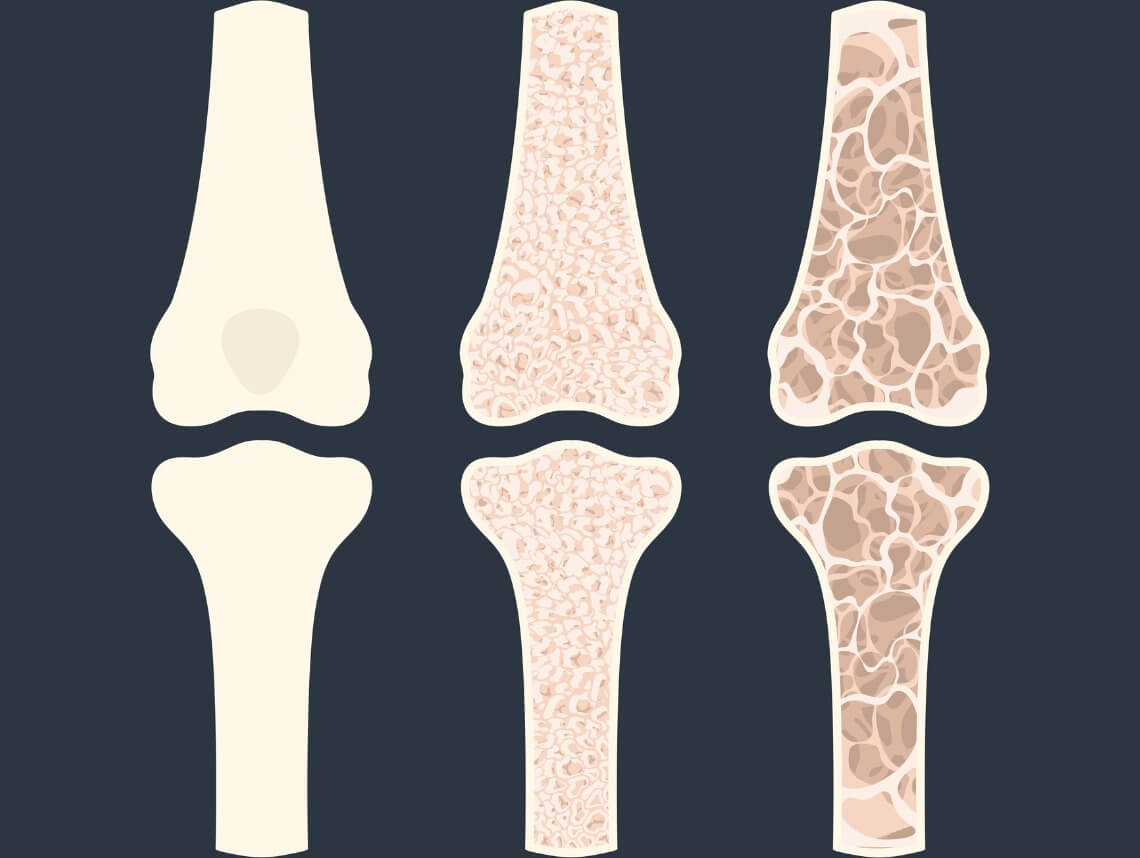If your child has been diagnosed with a rare condition, it can fill your mind with questions. From wondering how the diagnosis will affect your little one’s growth and development to their ability to live independently, the uncertainty can be a source of stress and anxiety. While a disease such as osteogenesis imperfecta can have a significant impact on your child as well as your entire family, it is a manageable condition.
Educating yourself as a parent and caregiver is an important first step to successfully living with osteogenesis imperfecta. That’s why we’re sharing the following practical overview, including the types, causes, and treatment options to help you better understand this diagnosis and take a proactive role in your child’s care.
What is osteogenesis imperfecta?
Affecting approximately one in 10,000 to 20,000 births, osteogenesis imperfecta describes a group of genetic bone disorders. The term literally means “imperfect bone formation,” and the disease causes increased risk and frequency of fractures.
Osteogenesis Imperfecta Types
There are at least 19 forms of osteogenesis imperfecta that researchers have been able to identify based on distinct symptoms and features. The most common are labeled type I to type IV:
Osteogenesis Imperfecta Type I
Affects more than half of all people with osteogenesis imperfecta, Type I is also the mildest form.
Osteogenesis Imperfecta Type II
This is the most serious type and causes a very high rate of mortality for infants with this diagnosis.
Osteogenesis Imperfecta Type III
Another serious form that results in a range of deformities, complications, and multiple fractures.
Osteogenesis Imperfecta Type IV
Often diagnosed at birth, type IV osteogenesis imperfecta has a wide variance of severity and symptoms. This type can result in legs and arms not developing straight, and fractures occurring when learning to crawl and walk.
Osteogenesis Imperfecta Causes and Risk Factors
Doctors and researchers have identified osteogenesis imperfecta as a genetic disorder. In most cases, a heritable defect or spontaneous mutation of two genes, COL1A1 and COL1A2, is the cause. These genes provide instructions for making collagen, particularly the type that helps build bone, connective tissue, and skin.
This makes genetics, particularly a parent or other family member with this disease the single biggest risk factor for osteogenesis imperfecta.
Osteogenesis Imperfecta Symptoms
There is a wide range of symptoms due to the different types of osteogenesis imperfecta, which can vary on a case-by-case basis. Some of the most commonly reported symptoms include:
- Brittle bones that result in frequent and sometimes multiple fractures
- Deformities, including spinal curvature, barrel-chestedness, and bowing of the legs
- Loose joints
- Muscle weakness
- Triangular shape to the face
- Changes in eye coloration from white to gray or light blue
- Soft and discolored teeth
Osteogenesis Imperfecta Complications
Like symptoms, complications can also depend on the type and severity of osteogenesis imperfecta. This condition can affect other major systems of the body, leading to respiratory problems, cardiovascular problems, joint conditions, hearing and vision problems, and kidney dysfunction.
Because there is so much overlap of symptoms and complications with other types of osteogenesis imperfecta and other conditions, a positive diagnosis is important to ensure proper treatment and care needs.
How is osteogenesis imperfecta diagnosed?
The risk of developing osteogenesis imperfecta can be identified before birth through genetic testing. This can help doctors know to perform certain tests at birth, including blood tests and bone density tests, to confirm the condition and identify the type.
In other cases, diagnostic testing for osteogenesis imperfecta can help identify the source of fractures or deformities occurring in a baby for unknown causes. Steps for this process can include:
- Review of medical history
- X-rays
- Blood work
- Bone biopsy
Osteogenesis Imperfecta Treatment Options
There is currently no cure for osteogenesis imperfecta, and treatment will depend heavily on the type and individual symptoms. Treatment options can include:
- Medications, known as bisphosphonates, can help strengthen bones and increase density, reducing the risk and frequency of fractures
- Specialized treatment for fractures, including lighter materials for casting to prevent additional problems
- Physical and occupational therapy
- Bracing, splinting, and rodding of bones to address deformities and prevent fractures
- Wheelchairs, walkers, and other assistive equipment may be recommended for more severe cases
Caring for a Child With Osteogenesis Imperfecta
Care needs for children with osteogenesis imperfecta revolve around creating a safe environment and reducing the risk of fractures as much as possible. Additional needs can include pain management, overcoming nutritional obstacles, and addressing emotional needs through support groups and counseling.
To meet these often substantial care needs, many families enlist the support of pediatric home health services.
Contact Care Options for Kids for Home Health Care in Florida
It can be hard to balance your time between work, home, and caring for a child. That’s why our team of skilled professionals at Care Options for Kids is here to help. We have been enforcing precautionary measures and following the Centers For Disease Control (CDC) guidelines for COVID-19 to ensure the safety and health of our clients and employees.
Our home health care services offer support in the comfort of your home. We refer loving and competent nurses to provide customized care for families — from a few hours a day to around-the-clock supervision. Contact us directly to speak with a home health care professional or request a free in-home assessment. Together we can determine the best plan of action to keep your loved ones happy and healthy.
If you or a loved one are considering Pediatric Home Health Care Services in Florida, contact the caring staff at Care Options for Kids. Call today at (888) 592-5855.






